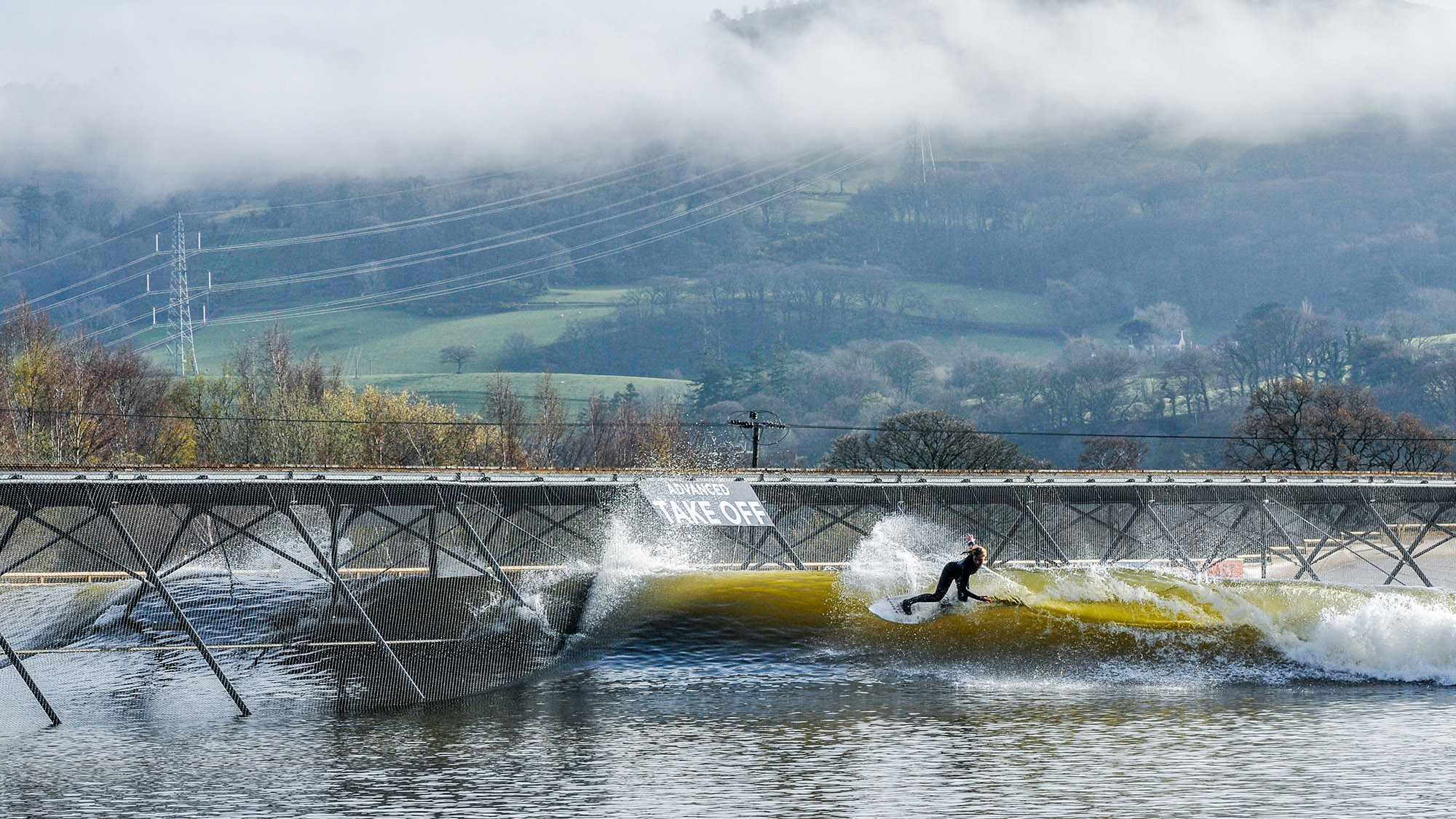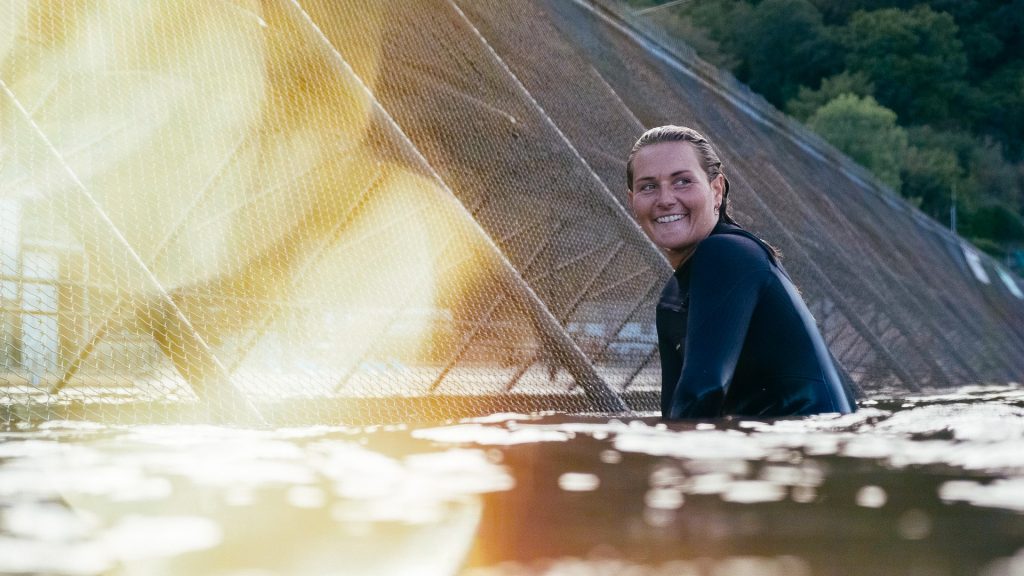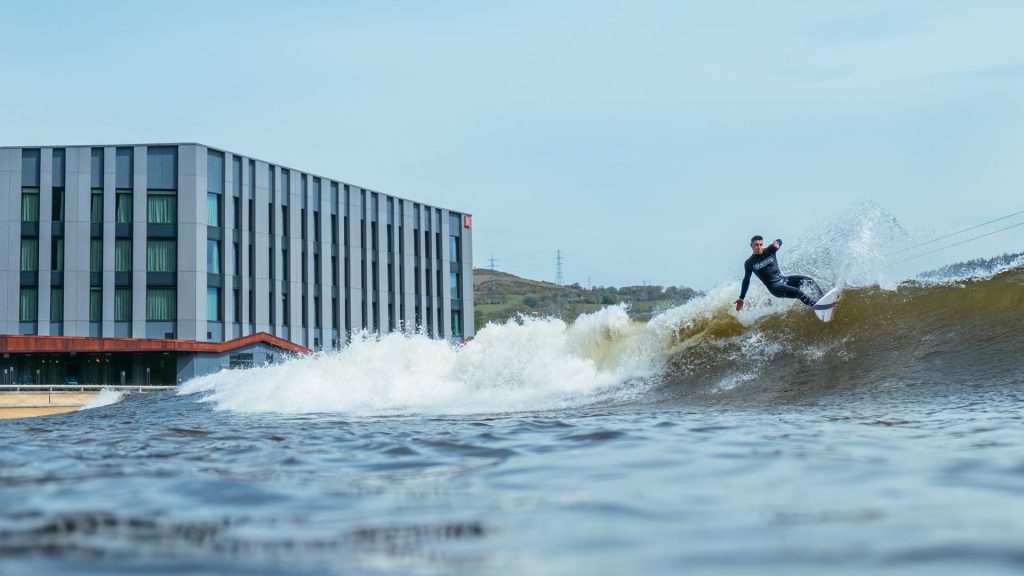Waves cease at world’s first 2.0 wave pool

The world’s first dedicated surf park, Adventure Parc Snowdonia, closed the wave pool for good this month. In a post on Instagram, the company said the machine had cost them a fortune in downtime and was not economically feasible to maintain. Their wave generator, a first-generation Wavegarden plow system, was one of only two deployed commercially in the world (the other one was at NLand in Austin, Texas.)
The closure was covered heavily in both endemic and mainstream media with BeachGrit saying that closure put “the very idea of inland surfing suddenly in question.” The truth is much less dramatic and click-worthy. The early generation technology had been having trouble on and off for a while according to sources. And the technology used by the majority of inland surfing destinations today, including Wavegaredn’s Cove design, is light years ahead of the machine at Snowdonia.
Originally launched in 2015 as Surf Snowdonia, the surf lagoon quickly became the go-to destination for curious globe trotters and local Welsh surfers. During its lifetime Adventure Parc Snowdonia created many firsts in the surf park space, creating a template for others to follow. Highlights included hosting adaptive surfing comps, enhancing the surrounding property with a hotel and spa in 2019, hosting professional contests and adding surf-savvy staff.

The company announced the closure on their website and via social media.
“We are bitterly disappointed that once again excellent employees are being made redundant. The sad reality is that despite the joy and adventure our waves brought to many as a world-first innovation, the machine has cost us a fortune in downtime, repairs and loss of business. More importantly, it has cost us a loss of reputation with our employees, people we’ve worked closely with since the start of this journey in 2015.”
But the question remains, with all the infrastructure and investment on the site, will Adventure Parc Snowdonia resurface with a different wave-making technology, as alluded to in their post: “We hope to be back with a new and reimagined experience from 2024 onwards.”
Snowdonia’s story is nothing short of remarkable, as Andy Ainscough transformed an abandoned aluminum mine site into a destination and a world first. He spoke about the process with WavePoolMag in 2019 in a podcast that you can listen to here. We hope to see a new incarnation of the world’s first surf park in the near future.

Surf Park Summit’s Dr. Jess Ponting explores the industry ripples sent throughout the wave pool industry with the announcement of Adventure Parc Snowdonia’s closing. Read below or check the full article here.
So, has the failure of the surfing component of Adventure Park Snowdonia thrown a spanner in the collective works of the dozens of surf park projects inching towards funding around the world.
I tend to think not. Here’s why…
An analysis of the issues underlying the situation at Snowdonia reveals just how far the industry has come in eight years. Also, we see clearly how important it is to remain plugged into the global surf park community to learn, evolve, share best practices to succeed when it comes to ongoing operations.
For example, the water treatment and preventative maintenance technologies and practices employed today, and continuing engineering advances among emerging technologies, mean that the specific issues that led to Snowdonia closing its surf lagoon operations are not existential threats to current and future surf park developments using the technologies on the market today.
For those who attended Surf Park Summit 2017 in Europe, the VIP breakfast, which was hosted at Surf Snowdonia, with Developer Andy Ainscough and father Martin, was a hit with everyone. Martin had purchased the land with a view to build an adventure leisure development when Andy saw a video of Wavegarden’s test facility in the Basque Country and got inspired. Martin was willing to take a chance on Andy’s dream. Being first to market with a new and unproven technology was most likely going to necessitate this type of family investor as more traditional forms of debt and equity financing had no idea what this thing was or what the ROI was likely to be.
On opening in 2015 Surf Snowdonia got off to a rocky start. As Martin Ainscough put it to the VIP session at Surf Park Summit Europe in 2017 (read the following with a gruff Manchester accent for best effect), “shortly after opening the f@#%ing thing broke”. And it wouldn’t be the last time.
The design choices with the original Wavegarden lagoon technology was only able to produce two shoulder high spilling waves every 90 seconds that did not bear a high level of fidelity to the feeling of surfing ocean waves. Despite these challenges Surf Snowdonia did well. For a time it was the only game in town and delivered a good experience for surfers, the waves were still all kinds of fun. In its first full month of operation the park exceeded expectations and attracted more than 15,000 visitors.
But it wasn’t the slow throughput and modest wave quality that spelled the end for the wave at Adventure Parc Snowdonia, it was the cost of the regular repairs and lost revenue caused by breakdowns that led to its demise.
From Wavegarden’s official response, they say that the park could have continued operations for many years but for a lack of preventative maintenance and adequate water filtration. The idea being the brown water in the lagoon, caused by very fine peat and silt particles, made inspection of the machinery very difficult, and that Snowdonia was the only Wavegarden facility without a preventive maintenance contract, choosing instead to manage this function instead. The commercial and cost implications to the park of these decisions being left unspoken, it’s clear that maintenance plays a key role that operators need to consider carefully and revisit on an ongoing basis.
— Dr. Jess Ponting
Related Coverage
